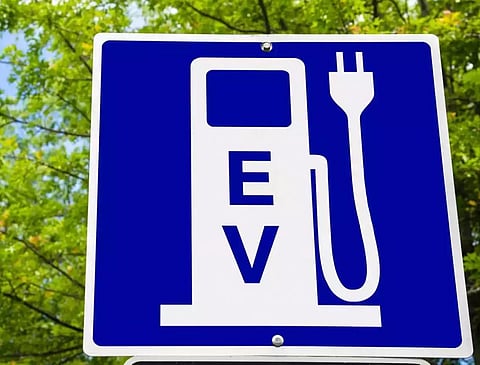

NEW DELHI: Electric vehicle (EV) manufacturers expect the market for eco-friendly vehicles to boom in the next few years even as their current share in automobile sales is less than one per cent. While few established auto players have entered this domain, niche companies control a larger part of the market.
“People have now started realising the benefits of EVs. It’s running cost is 10paise/km as against Rs.1/km in ICE bikes. The ecosystem is getting ready and in the next two-three years, there will be a drastic change. I believe 25 per cent of the total two-wheelers sold will be electric by 2030,” Jeetender Sharma, Managing Director, Okinawa Autotech told this publication.
According to Uday Narang, chairman of Anglian Omega Group, the amount of money invested in the EV ecosystem is huge. He believes that once the battery cost is brought down, game for ICE vehicles will be over.
“By 2030, or maybe earlier, 20-30 per cent of total two-wheeler demand will be electric. Electric four-wheeler share will be even more at 30-40 per cent,” he added.
Narang’s Omega Seiki, which entered the EV space in February 2020, now makes roughly 12,000 units of EV three-wheelers per year. Both the companies have rapid expansion plans.
“In the next two years we will make over 1 lakh electric three-wheelers, 50,000 electric two-wheelers, 50,000 electric four-wheelers and 50,000 electric tractors,” said Narang.
Sharma added Okinawa plans to launch an electric motorcycle which is going to be 100 per cent built in India.
"We have now reached to pre-covid level. At present, we are selling around 3500-4000 units per month. This fiscal we will be launching an electric motorcycle which is going to be 100 per cent built in India," said Sharma.
In spite of the government push to promote the adaptation of environmental friendly vehicles, India's EV industry hasn't picked up the way many would have wanted. Experts have repeatedly attributed factors such as lack of charging stations, higher battery cost and a concrete long term policy slowing down the growth of this segment.
At present, India sells around 10,000-12,000 EVs per month as against China's 1.30 lakh units per month. "We need more awareness, more direct incentives and thousands of charging stations every year," the executives said.